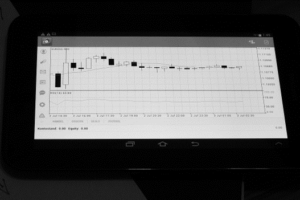 Those who are involved in Manufacturing Careers may be familiar with the term manufacturing process automation. If you’re not one of them, now is the time to familiarize yourself with it as it is becoming a standardized tool in manufacturing across the globe.
Those who are involved in Manufacturing Careers may be familiar with the term manufacturing process automation. If you’re not one of them, now is the time to familiarize yourself with it as it is becoming a standardized tool in manufacturing across the globe.
Automation in manufacturing has had a bad reputation in the past, with many people associating it with conveyor belts and robotic technology that no longer requires the need of human labor. However, although in some instances this may be the case, automation is a vital tool for electronic contract manufacturing or any manufacturing business and no longer a huge threat to employees. Any business who automates manufacturing processes will find that it helps to improve decision making through the ability to collect data and analyse it.
Why Automation?
According to this community article, automating manufacturing processes can save companies time, money and increase their growth at a substantial rate. With the need for products rising dramatically, the manufacturing sector must adapt to keep up with this ever-growing demand. As technology continues to advance, it won’t be long begore all businesses in the manufacturing sector have to automate their processes to help increase the speed to produce and send product to customers around the world. And you can also utilise a service for 3D scanning as this can be a great help.
Enhanced Supply Chain
It is important to keep your customer base happy. After all, without them your company will no longer generate profit. When a customer makes an order with a company, they are often given an estimated delivery time. If you don’t have a strong supply chain in place, then this can lead to customers waiting a long time for their orders which can lead to complaints that can damage your company’s reputation.
Automating your supply chain can help you decrease your delivery time to customers due to increased speed in processing orders. Routine manufacturing holds high importance as it maps the journey of your products throughout the manufacturing process and you will also be able to improve this through automation. Supply chain automation, being an integral part of the procurement process as a whole, is required to work in sync with the procurement platform used in the organization. Visit coupa.com for more on this.
Improve Customer Relationships Through Better Packaging
There are specific areas of your manufacturing process that you can automate to help improve the relationship between your brand and the consumer. Industrial packaging machines and laser cutting technologies are resources being employed by many companies across the globe. They can help package goods at a fast rate and to a high-quality to ensure that your customers are receiving their product safely.
Blue Print Automation are packaging machine manufacturers with years of experience in the industry. They can supply your company with specialist solutions for packaging your products. You can cater your packaging solutions to suit the needs of your company and help work towards a more efficient production line and happier customers.
Minimize Production Waste and Cut Costs
Most businesses can fall victim to production waste which can be damaging to a company’s budget. Using lean inventory techniques can help you monitor your costs, inventory and progress of operations. This has been crucial in helping company’s highlight areas where they are overspending and as a result, they can cut these costs. This can also allow for production waste to be minimized through using programmed machines at a foundry and machine shop which use materials accurately to try and reduce as much waste as possible.
Automating your manufacturing processes will also allow you to handle multiple projects at once from creating a product to packaging it up. This allows for a surge in workplace productivity and opens up the opportunity for a business to generate more income.
Allows Businesses to Evolve with Technology
We live in a world where technology is fast evolving and just like we do in our everyday life’s, businesses must also evolve and adapt with it. Traditional manufacturing methods are slowly dying out and the introduction of impressive industrial equipment has seen a dramatic increase in the speed in which products can be created and shipped.
The reason we should accept manufacturing automation is down to the fact that businesses need to grow in order to survive in a competitive market, as there are other companies that work in mdf cutting service that is great for industrial services. With the rise in the use of the internet millions of people across the globe have a high demand for product and want it available to them at the click of a button. Companies need to have the ability to meet this demand so automating processes in all aspects of their business is crucial in helping them to survive.
Improve Decision Making
Any business who automates manufacturing processes will find that is helps to improve decision making through the ability to analyse data. Having real-time data allows manufacturers to provide accurate timelines of when tasks can be completed, and stake holders can be provided with more transparency on proceedings. As a whole, automation can make processes in manufacturing run more smoothly.
If you are a consumer who likes to buy online, or a business owner who is aiming for impressive growth, automation is the key to producing and delivering products at a fast and efficient rate. As a business owner, if you haven’t already started to think about automating your manufacturing processes, now could well be the time to start.







nice blog. this is the time for manufacturers to use automation in their business
Great read. Algorithms help to make more informed decisions, process automation using reinforcement learning, production planning using predictive models which lead to increased efficiency and production flexibility. Automation and industry 4.0 solutions can really speed up processes in your company.